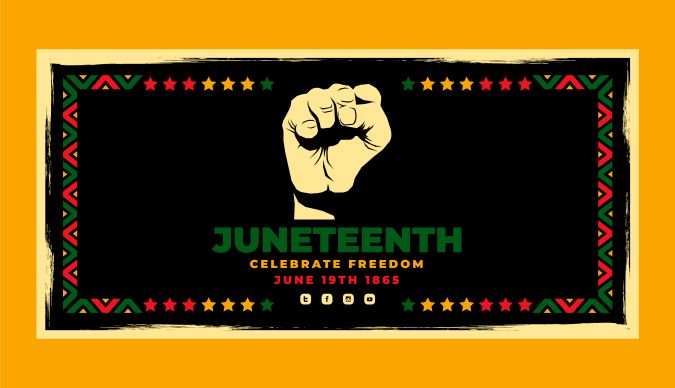Acknowledged annually on June 19, the former regional holiday provokes celebration in Black communities nationwide. Juneteenth, a portmanteau of the calendar date, is rooted in Texas and commemorates the ending of slavery. The homegrown holiday’s Southern beginnings have evolved into a day of recognition for freedom and legacy in African American communities.
On June 19, 1865, the enslaved people in Galveston, Texas were informed of the Emancipation Proclamation two-and-a-half years after former President Abraham Lincoln signed the historical act. According to the National Museum Of African American History and Culture, approximately 2,000 troops, lead by General Gordon Grange, arrived in the southern state announcing the freedom of over 250,000 enslaved slaves.
The Lone Star State, before being taken over, had become a safe place for citizens who were not willing to give up their human property. Once the decree was known the moment became engraved in society forever. Now feasts, parades, church programs and more erupt every late spring, however, this was not always the case.
Juneteenth.com reports early gatherings for the holiday were not easy as many Black people had yet to become landowners. Festivities were barred from many public spaces. Although Emancipation Park was acquired in 1898 in Houston, celebrations dwindled down in the early 1900s due to cultural and economic reasons.
The Civil Rights Movement of the 1950s and 1960s inspired a resurgence in Juneteenth festivities. In 1980, the state of Texas became the first to recognize Juneteenth as an official holiday.
In 2020, Juneteenth was recognized by all but three states (Hawaii, North Dakota, South Dakota) as the country is intertwined in another civil rights movement, calling for social justice and the end of police brutality. Many communities hold local celebrations for the commemorated holiday and individual families often plan cookouts and other gatherings empowering their familial bonds.
CLICK HERE for information for Pittsburgh’s 2022 JUNETEENTH Celebration
CLICK HERE for virtual celebration events hosted by the Smithsonian National Museum of African American History & Culture
Story Credit: DeMicia Inman/thegrio
Photo Credit: freepik



































